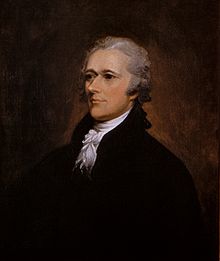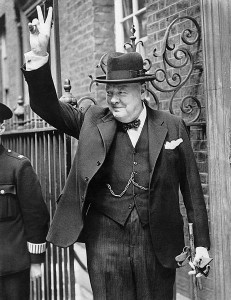June 18 is Father’s Day see 1910
Go Fishing Day
International Panic Day
International Picnic Day
National Splurge Day
National Sushi Day
Waterloo Day, anniversary of the Battle of Waterloo, lost by Napoleon in 1815.
William Penn founded Philadelphia as the capital of the Province of Pennsylvania in 1682.
The charter of the Massachusetts Bay Colony was revoked via a scire facias writ issued by an English court on June 18, 1684 for the colony’s interference with the royal prerogative in founding Harvard College and other matters.
In English law, a writ of scire facias (Latin, meaning literally “make known”) was a writ founded upon some judicial record directing the sheriff to make the record known to a specified party, and in the case of letters, patents, and grants, requiring the defendant to show cause why the patent or grant should not be annulled and vacated.
Samuel Wallis, an English sea captain, sighted Tahiti June 18, 1767 and is considered the first European to reach the island. It is located 2,376 nautical miles south of Hawaii.
 Publication of Federalist Paper #79: The Judiciary Department written by Alexander Hamilton in 1788.
Publication of Federalist Paper #79: The Judiciary Department written by Alexander Hamilton in 1788.
War of 1812: The U.S. Congress declared war on Great Britain, Canada, and Ireland on this day in 1812.
The Battle of Waterloo resulted in the defeat of Napoleon Bonaparte by the Duke of Wellington and Gebhard Leberecht von Blücher, forcing him to abdicate the throne of France for the second and last time in 1815.
Susan B. Anthony was fined $100 for attempting to vote in the 1872 presidential election. She was arrested for voting in Rochester, New York in violation of state laws that allowed only men to vote. Anthony argued that she had the right to vote because of the recently adopted Fourteenth Amendment to the U.S. Constitution, part of which reads, “No State shall make or enforce any law which shall abridge the privileges or immunities of citizens of the United States.”
1910 – The first Father’s Day was celebrated in Spokane, Washington in 1910.
 “Finest Hour” speech by Winston Churchill on June 18, 1940.
“Finest Hour” speech by Winston Churchill on June 18, 1940.
‘What General Weygand has called the Battle of France is over: the Battle of Britain is about to begin. Upon this battle depends the survival of Christian civilisation. Upon it depends our own British life, and the long continuity of our institutions and our Empire. The whole fury and might of the enemy must very soon be turned on us. Hitler knows that he will have to break us in this island or lose the war. If we can stand up to him, all Europe may be freed and the life of the world may move forward into broad, sunlit uplands. But if we fail, then the whole world, including the United States, including all that we have known and cared for, will sink into the abyss of a new Dark Age made more sinister, and perhaps more protracted, by the lights of perverted science. Let us therefore brace ourselves to our duty and so bear ourselves that, if the British Empire and its Commonwealth last for a thousand years, men will still say: “This was their finest hour” ‘.
